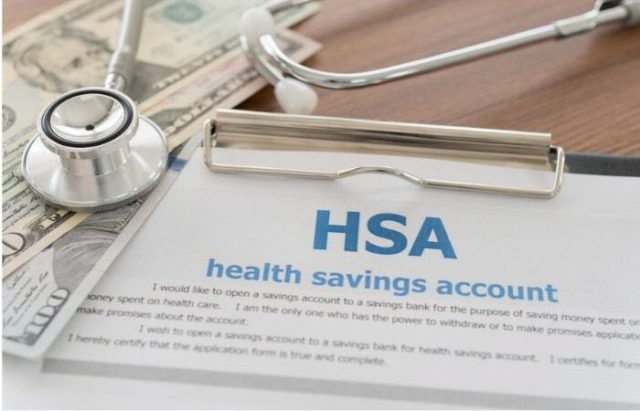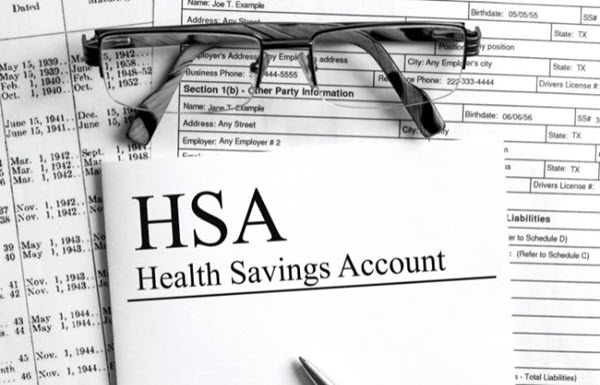Debunking The Myths — And Uncovering The Advantages — Of Health Savings Accounts
By Jason Bornhorst
January 10, 2024 • Fact checked by Dumb Little Man

When you started your career, you were probably told that working hard and saving plenty of money would put you on your way to financial independence and a comfortable retirement. While this is good and true advice, it overlooks one thing: Your savings won’t matter if you aren’t healthy.
Your health is your most valuable asset. Without it, you can’t perform at your professional best — let alone fully enjoy life. Health problems can also affect your finances. The cost of visits to the doctor, prescriptions, and medical supplies quickly add up. According to the Bureau of Labor Statistics, the average American spends about $5,000 out of pocket every year on healthcare.
If you’re currently young and healthy, you probably aren’t even close to hitting that amount. That good fortune might not last forever, which is why it’s essential to do everything you can to stay healthy and prepare for potential medical expenses later in life. This includes visiting your doctor annually, exercising regularly, and getting adequate sleep — it also includes opening and investing in a health savings account, or HSA.
An HSA allows you to set aside money for qualified medical expenses without paying any taxes on those funds. Even though anyone with a high-deductible health plan is able to open an HSA, these accounts tend to be underused because they combine two complex subjects: taxes and healthcare.
Plus, HSA companies have done a poor job of making it easy to understand and use these tools. Let’s change that by debunking a few myths about the following health savings account rules:
MYTH 1: HSAs Are ‘Use It Or Lose It’ Accounts
HSAs are often lumped into the same category as flexible spending accounts, or FSAs, but there are many striking differences between HSAs and FSAs. Most notably, the money in an HSA account rolls over annually and follows you from job to job.
You own your HSA, and you can use the funds whenever you want for years to come. FSAs, however, are owned by your employer. With an FSA, you lose any funds you don’t spend — or you may have a limit to what can roll over.
This ability to roll over the balance in your HSA year after year makes it a useful investment tool. It offers a savvy way to save, invest, and eventually withdraw funds without paying some of the taxes common to more traditional investment tools like 401(k)s or IRAs.
And, unlike those more conventional methods of saving for retirement, an HSA doesn’t require you to begin withdrawing funds at a certain age. You can let your savings continue to grow in an HSA long after retirement, only withdrawing funds to pay for qualified medical expenses.
MYTH 2: You Can Only Use The HSA Provided By Your Employer

People often assume they can only use their employer-sponsored HSA. This is also false — and you should thank your lucky stars because employer-provided HSAs tend to have high fees and subpar investment options. Since an HSA is intended to be a lifetime account, it’s worth the effort to shop around for one that suits your needs.
This legwork could save you thousands of dollars each year. Look for low fees, great investment options, and specific features that benefit you. Once you find a better option on the open market, you can transfer your old HSA balance and ask your employer to contribute to it — and employer contributions to HSAs are made with pre-tax dollars.
MYTH 3: There Are A Ton Of Limits On HSA-Eligible Expenses
Another HSA myth focuses on the scope of eligible items and medical expenses. People assume that HSAs can only be used to pay for a limited list of items, but you can use them to cover more than 300 “qualified expenses.”
HSA-eligible expenses include everything from prescription drugs and contact lenses to primary care visits and ambulance rides. Even less mainstream health services like acupuncture and chiropractic care are HSA-eligible expenses. You can even use HSA funds to cover travel expenses to and from eligible healthcare appointments.
As of March 2020, the CARES Act made it possible for people to use HSA funds to cover some previously ineligible out-of-pocket expenses. These include over-the-counter medications such as Tylenol, allergy medications, and feminine hygiene products. If an item is even remotely related to healthcare, your HSA probably covers it.
MYTH 4: You Should Always Pick The Priciest Health Plan Offered By Your Employer

When people are offered health insurance by their employers, they often assume they should select the most expensive option available. For some people — individuals who have chronic medical conditions and frequently visit doctors and specialists — this might be the right decision.
But if you are young, healthy, and rarely visit the doctor, selecting the most expensive health insurance plan offered by your employer will likely only waste your money. That choice could also disqualify you from opening an HSA.
Most young professionals would be better off choosing a high-deductible health plan with a low premium and investing the savings into an HSA. Quit giving health insurance companies money for coverage you never use!
Opening an HSA early on makes it more likely that you’ll be able to enjoy a healthy and financially secure life. Work hard and spend your money wisely — but also be sure to invest in your health along the way.

